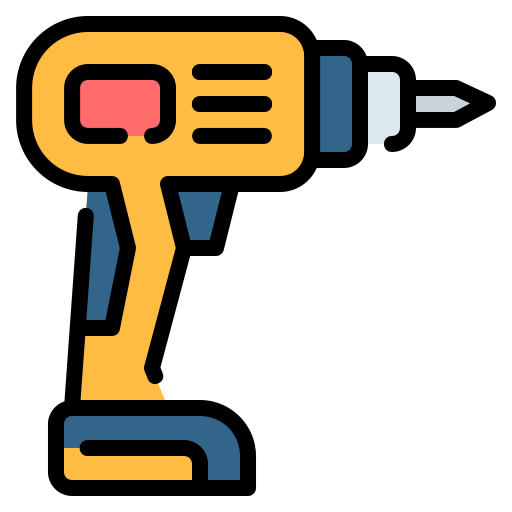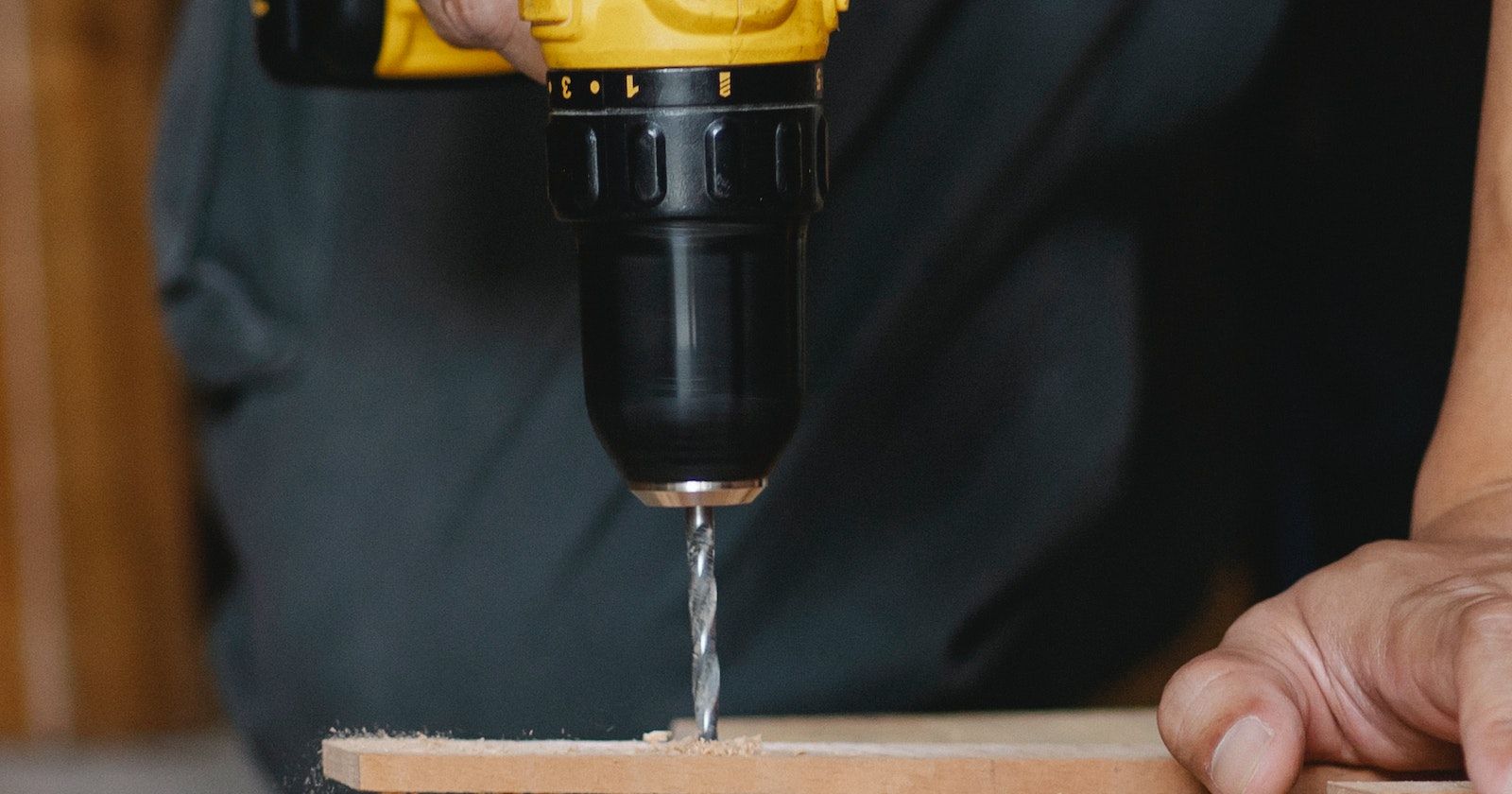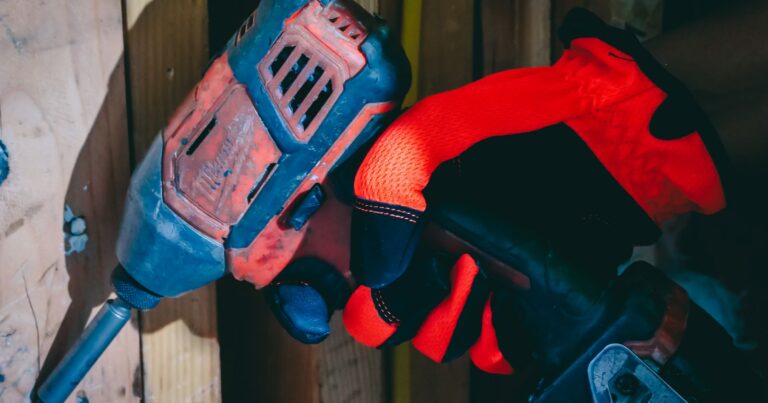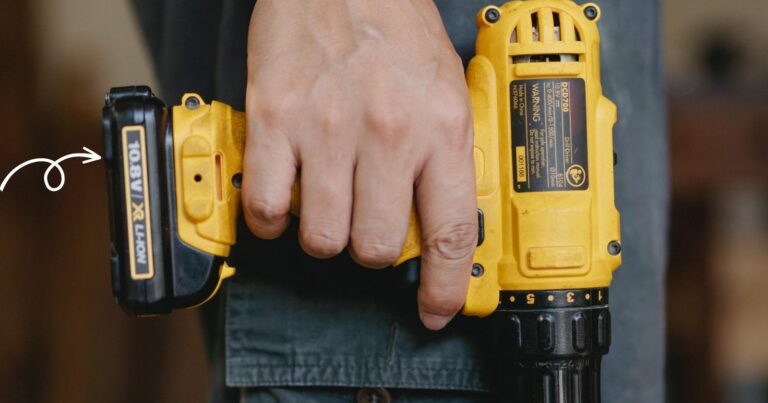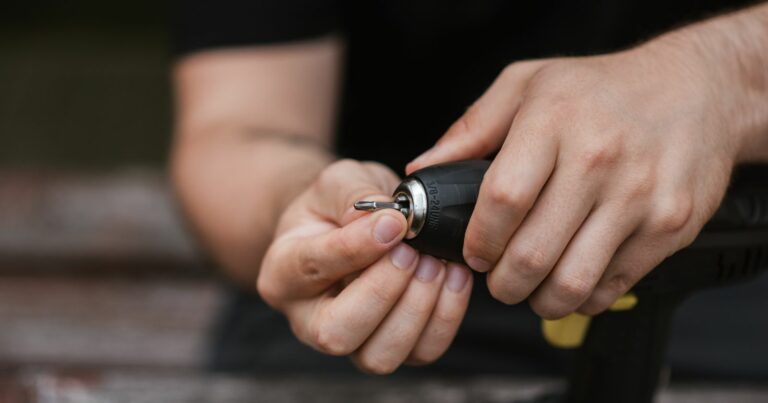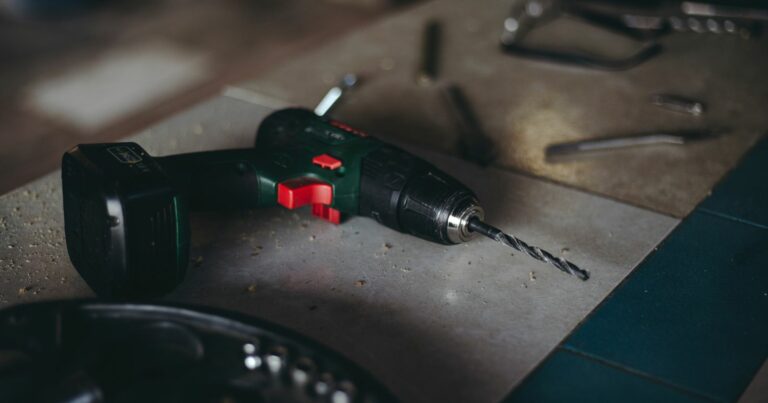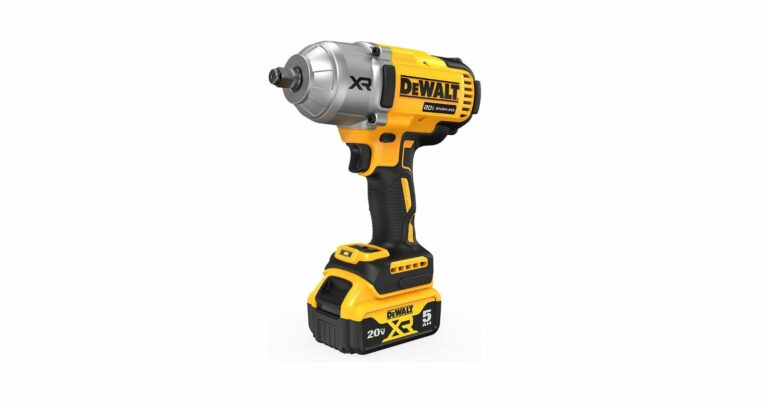Why Woodworkers Don’t Use Impact Driver
As a DIY, I use impact drivers all the time. They’re powerful, versatile, and efficient tools that can make many tasks much easier. However, I’ve noticed that many woodworkers don’t seem to use impact drivers very often, if at all. This got me thinking: why is that? In this post, we’ll explore the reasons why woodworkers don’t use impact drivers and what can be done to address their concerns.

Suggested Reading: Why Impact Driver Drill Don’t Work In Cold Weather
Before we dive into the reasons why woodworkers don’t use impact drivers, let’s define what an impact driver is. An impact driver is a power tool that delivers high torque and rotational force to drive screws, bolts, and other fasteners. It works by using a combination of rotational force and concussive blows to create a powerful turning motion. Compared to drills and other drivers, impact drivers can deliver much higher torque and speed, making them ideal for heavy-duty tasks.
Benefits of Using an Impact Driver
So why do contractors like myself use impact drivers so much? Here are some of the benefits:
Increased power and speed:
Impact drivers can deliver much more torque and rotational force than drills or other drivers, which means you can drive screws and other fasteners much faster and with less effort.
Reduced fatigue and strain on the user:
Because impact drivers use a combination of rotational force and concussive blows, they can help reduce the strain on your wrists and hands, which can be especially helpful for longer or more repetitive tasks.
Enhanced precision and control:
The high torque and speed of impact drivers can actually help you be more precise and accurate when driving screws, as they are less likely to slip or strip the screw head.
Compatibility with various materials and applications:
Impact drivers can be used with a wide variety of screws, bolts, and other fasteners, and they can also work well with different materials like wood, metal, and concrete.
Drawbacks of Using an Impact Driver
While impact drivers are powerful and versatile tools, they do have some drawbacks that may not make them the best choice for every situation. Here are some of the potential downsides:
Loud noise and vibration:
Impact drivers can be quite loud and produce a lot of vibration, which can be a concern for some users. Ear protection and proper usage can help mitigate these issues.
Lack of torque control:
Because impact drivers deliver so much torque, it can be difficult to control the depth of the screw or the amount of force being applied.
Possibility of overdriving or damaging screws and other fasteners:
If not used correctly, impact drivers can cause screws and other fasteners to be driven too deeply, or to be damaged or stripped.
Higher cost compared to other power tools:
Because impact drivers are more specialized tools, they tend to be more expensive than drills or other drivers.
Watch This Video And Learn Why Woodworkers Don’t Use Impact Driver
Maybe its time to get a new impact driver. Check out the Best Impact Driver Under $100.
Why Woodworkers Don’t Use Impact Drivers
So with all these benefits, why don’t woodworkers use impact drivers more often? Here are some of the reasons:
Perception of impact drivers as a “rough” or “brute force” tool:
Woodworking is often seen as a delicate and precise craft, and some woodworkers may feel that impact drivers are too rough or powerful for their needs.
Preference for traditional methods and tools:
Many woodworkers are passionate about traditional woodworking methods and may prefer to use hand tools or specialized power tools like brad nailers or screw guns.
Lack of understanding or experience with impact drivers:
Some woodworkers may not be familiar with impact drivers or may not have had the opportunity to try them out.
Concerns about damaging delicate materials or finishes
How to Address Woodworker Concerns
While impact drivers may not be the best fit for every woodworking project, there are ways to address some of the concerns mentioned above and make impact drivers more accessible to woodworkers. Here are some suggestions:
Use the right bits and attachments:
By using specialized bits and attachments designed for woodworking, impact drivers can be gentler and more precise. For example, hex shank bits with a torsion zone can help prevent damage to screws and fasteners.
Practice proper usage and technique:
Proper usage of an impact driver is key to minimizing the risk of overdriving screws or damaging materials. This includes using the right torque setting, applying pressure evenly, and knowing when to stop driving.
Incorporate impact drivers into traditional woodworking methods:
Impact drivers can be used alongside traditional woodworking tools, rather than as a replacement. For example, an impact driver can be used to quickly install screws while a hand plane is used for finishing touches.
Learn from experts and peers:
Woodworking communities and forums can be a great resource for learning about different tools and techniques. Talking to experienced woodworkers or taking a woodworking class can also provide valuable insight into how impact drivers can be incorporated into woodworking projects.
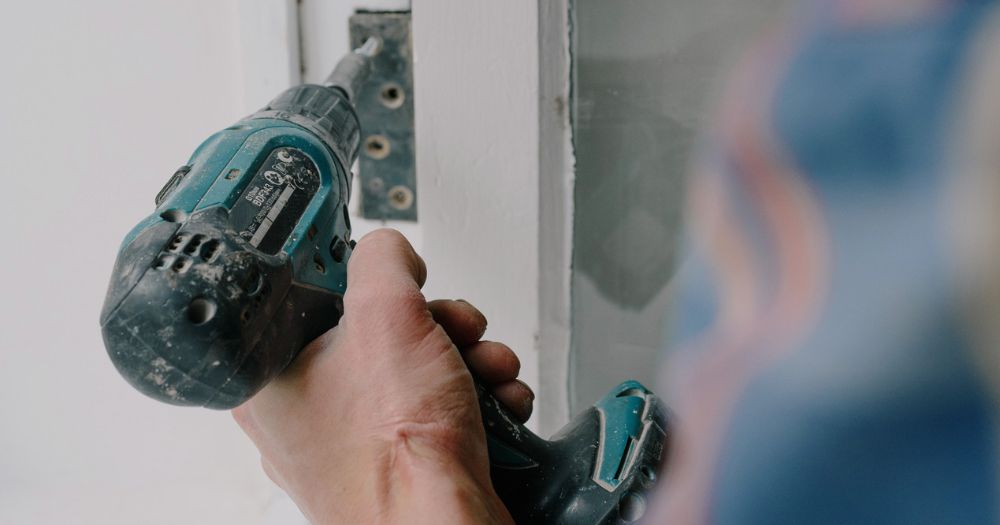
Taking Care of Your Tools: My Guide to Impact Driver Maintenance and Care
I want to share with you my personal tips and tricks on how to maintain and care for your impact driver. As a woodworker, I understand the importance of keeping our tools in top shape. After all, the longevity and optimal performance of our tools are crucial to the success of our projects.
Over the years, I’ve learned that proper maintenance goes a long way in preserving the life of an impact driver. It’s not just about cleaning the tool after use, but also about regular inspections, proper storage, and timely repairs.
I’ll walk you through the steps I take to ensure my impact driver is always ready for the next project. From cleaning techniques to preventative measures, I’ll share my routine to help you get the most out of your impact driver.
Remember, a well-maintained tool not only lasts longer but also performs better. So, let’s dive into the world of impact driver care and maintenance, and I’ll show you how to keep your tool running smoothly for years to come.
Suggested Reading: Best Drill Under$100
Hearing from Fellow Woodworkers: My Personal Experiences and Reviews
In this section, I want to share with you a compilation of personal experiences and reviews from my fellow woodworkers who have used impact drivers. I believe that hearing directly from those who have hands-on experience with these tools can offer a wealth of practical insights.
These testimonials come from a diverse range of woodworkers, each with their unique style and approach to their craft. By sharing their perspectives, I hope to provide you with a broader understanding of how impact drivers can be integrated into various woodworking projects.
Remember, every woodworker’s journey is unique, and what works for one might not work for another. But, by sharing our experiences, we can learn from each other and continue to grow in our craft. So, let’s delve into the world of impact drivers, as seen through the eyes of those who use them daily in their woodworking endeavors.
Navigating the Pitfalls: My Insights on Common Mistakes with Impact Drivers and How to Avoid Them
In this section, I want to share with you some of the common mistakes I’ve seen woodworkers make when using impact drivers, and more importantly, how to avoid them. As someone who has spent countless hours working with these tools, I’ve had my fair share of mishaps and learned valuable lessons along the way.
From overdriving screws to neglecting safety measures, these mistakes can not only affect the quality of your work but can also pose risks to your safety. I’ll break down these common errors, explain the potential consequences, and provide practical advice on how to prevent them.
Remember, nobody is perfect, and we all make mistakes. But by being aware of these common pitfalls and knowing how to avoid them, we can improve our skills, work more efficiently, and ensure our safety while using impact drivers.
So, let’s dive into these common mistakes, learn from them, and continue to grow in our woodworking journey.
More Tips to Enhance Your Impact Driver Experience
- Ignoring the Battery Level: Impact drivers, like other cordless tools, rely on their battery power. I’ve seen many instances where work gets interrupted because the battery dies unexpectedly. Always keep an eye on your battery level and have a backup ready if you’re planning to work for an extended period.
- Not Adjusting Speed Settings: Many impact drivers come with adjustable speed settings, and not utilizing them is a common mistake. Different tasks may require different speeds. For instance, you might need a slower speed for delicate tasks and a faster one for heavy-duty tasks. Understanding and using these settings can significantly improve your control and efficiency.
- Forcing the Tool: If your impact driver isn’t driving a screw or removing a bolt, don’t force it. Forcing the tool can lead to damaged materials or even a broken tool. Instead, check if you’re using the right bit and that it’s properly inserted. If you’re still having trouble, the screw or bolt might be stripped or rusted, and you might need to try a different approach.
- Not Handling the Tool Properly: An impact driver should be held with both hands – one on the handle and the other supporting the base. This gives you better control over the tool. Also, always make sure your hands are dry and clean before handling the tool to prevent any slippage.
- Overlooking the Manual: Every impact driver comes with a manual that provides valuable information about the tool. Ignoring this manual is a common mistake. It contains specific instructions about maintenance, safety, and other features of the tool. Always take the time to read and understand the manual.
Remember, mastering the use of an impact driver, like any other tool, takes time and practice. Don’t be discouraged by initial mistakes. Instead, learn from them and keep improving. With patience and persistence, you’ll become adept at using an impact driver, making your woodworking projects more efficient and enjoyable.
FAQs
Impact drivers are powerful tools that are commonly used for driving screws and other fasteners. However, while impact drivers can be useful for some tasks, they are not always the best choice for woodworking. In this FAQ section, we will discuss the reasons why woodworkers often avoid using impact drivers.
1: Are impact drivers too powerful for woodworking?
Impact drivers are designed to deliver a lot of torque, which can be great for driving screws into tough materials like metal or concrete. However, this same power can be a liability when working with wood, which is a softer material that can be easily damaged or split. The high torque of an impact driver can cause screws to strip or break, or even split the wood itself. For this reason, many woodworkers prefer to use a regular drill or a hand-held screwdriver when working with wood.
2: Do impact drivers make too much noise?
Impact drivers are known for making a lot of noise when they are in use. This can be a problem for woodworkers who often work in small, enclosed spaces, such as workshops or garages. The loud noise can be disruptive and even harmful to a woodworker’s hearing over time. To avoid this problem, woodworkers may opt to use quieter tools like regular drills or hand-held screwdrivers instead of impact drivers
3: Are impact drivers too bulky for fine woodworking?
Impact drivers can be relatively large and bulky, especially compared to hand-held screwdrivers or precision drills. This can make them difficult to maneuver in tight spaces or when working on delicate or intricate woodworking projects. For fine woodworking tasks that require precision and control, woodworkers may prefer to use smaller, more nimble tools that are easier to handle and provide greater accuracy
Further Reading: When Not To Use An Impact Driver.
Conclusion
While impact drivers may not be the go-to tool for every woodworking project, they offer many benefits that can help woodworkers save time and effort on certain tasks. By addressing the concerns woodworkers have about impact drivers and demonstrating their versatility and precision, we can help make them a more accessible tool in the woodworking world.Incorporating impact drivers into woodworking projects can help woodworkers increase their productivity and efficiency, while still maintaining the quality and precision that is so important to the craft. With the right tools, techniques, and education, woodworkers can add impact drivers to their toolkit and take on even more ambitious projects.
